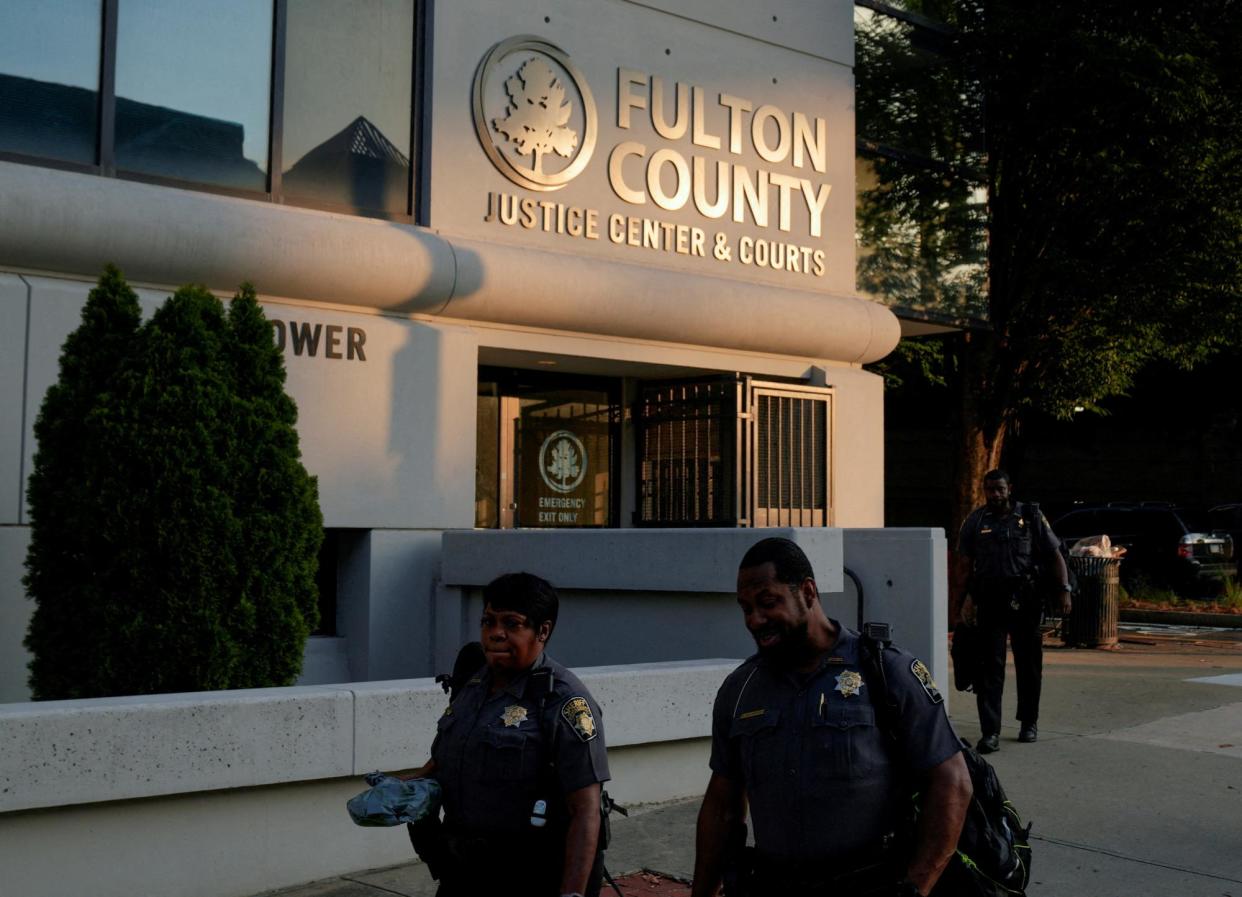Georgia becomes first state to require election law training for police

Georgia is the first state to mandate training in election law in order for police to become state certified, a reflection of lessons learned in the aftermath of the state’s 2020 race.
The new requirement for police trainees to take a one-hour course on election laws is meant to keep officers from trying to guess at how to enforce the law on election day, said Chris Harvey, deputy executive director for the Georgia peace officer standards and training council.
“Cops just really need to know what are some of the basic ground rules around elections and voting, because they’re very specific,” he said. “In my opinion, the worst thing that can happen is if you have a partisan person or partisan force trying to manipulate the police, and have the police not have any idea what they’re supposed to be doing.”
Harvey’s long career as a police officer took a side road in 2015 when then-secretary of state, Brian Kemp, named him Georgia’s director of elections. He carried the experience from 2020 into his recent appointment to the state body certifying police officers.
“Having seen the threats to election officials, having seen things happen to polling places, having myself been threatened during the 2020 election, I know that … it was likely that election officials were going to be calling the police,” Harvey said.
In the worst case, police may have to respond to threats of violence or actual violence at a polling place. More likely, they will be responding to a cranky individual who refuses to take direction from a poll officer who has asked someone to turn a campaign shirt inside out or refuses to get off their phone in the polling place.
Training material for the course includes references to Georgia’s controversial law making it a misdemeanor to provide food or drink to someone waiting in line to vote. It also notes that it is illegal to carry a gun within 150ft of a polling place, which may be more likely to trip someone up in a state with permitless carry.
“You can’t carry a firearm unless you are a police officer or certified security guard,” Harvey said. “But if a second amendment activist is like, ‘I’m not gonna give up my gun,’ then things can happen quickly. But again, 99% of the problems are handled by poll officials in a very non-confrontational, de-escalatory manner.”
Harvey said battleground states like Arizona, Michigan, Pennsylvania and others should consider adopting a training mandate as well.
The training mandate in Georgia will not take effect until January, but the training material will be available within weeks, Harvey said. Harvey worked to formulate the training and to produce a pocket guide for police officers responding to problems at the polls with the Committee for Safe and Secure Elections, a non-partisan group of current and former election officials and law enforcement officers formed in the wake of the 2020 election to coordinate personal security for election officials.
The training emphasizes de-escalation and ways police officers should not allow themselves to appear threatening with their presence.
Historically, some communities would place police in high-visibility positions near polling places as an intimidation tactic, a point noted by Common Cause earlier this week to guidance issued by Diego Morales, the Indiana secretary of state, calling for a greater law enforcement presence at polling places to assist elections workers.
Training material also notes that police have a positive duty to prevent election interference and intimidation; that is, a police officer can commit a crime by failing to stop intimidation and harassment during elections.
That obligation stems from both state and federal law. During the 2020 election, police in San Marcos, Texas, ran afoul of the Ku Klux Klan Act of 1871 when they failed to intervene as Trump partisans swerved at and harassed a Biden-Harris bus on the open road. Other Texas communities had provided a police escort. San Marcos ultimately settled a suit over the affair for $175,000 in 2023.
“We don’t expect police to be experts in election law, but we expect them to know that there’s a place they can go to get these answers,” Harvey said. “Hopefully, it’ll click in. And hopefully, agencies will start to train officers with some of this material in the weeks and months leading up to the election.”
